-
 Univers
Univers
-
 Ebooks
Ebooks
-
 Livres audio
Livres audio
-
 Presse
Presse
-
 Podcasts
Podcasts
-
 BD
BD
-
 Documents
Documents
-
- Cours
- Révisions
- Ressources pédagogiques
- Sciences de l’éducation
- Manuels scolaires
- Langues
- Travaux de classe
- Annales de BEP
- Etudes supérieures
- Maternelle et primaire
- Fiches de lecture
- Orientation scolaire
- Méthodologie
- Corrigés de devoir
- Annales d’examens et concours
- Annales du bac
- Annales du brevet
- Rapports de stage
La lecture à portée de main
Vous pourrez modifier la taille du texte de cet ouvrage
Découvre YouScribe en t'inscrivant gratuitement
Je m'inscrisDécouvre YouScribe en t'inscrivant gratuitement
Je m'inscrisEn savoir plus
Vous pourrez modifier la taille du texte de cet ouvrage
En savoir plus

Description
Some Do Not (1924) is a novel by Ford Madox Ford. Set during the First World War, the novel is the story of Christopher Tietjens, a brilliant statistician and wealthy aristocrat known as “the last Tory.” As he moves from a faithless marriage into an affair of his own, eventually volunteering to fight under dubious—perhaps suicidal—motives, Tietjens appears both symbolic and tragically human, a casualty of a dying era dedicating its final breaths to death, despair, and destruction. Adapted for television twice—a 1964 series starring Ronald Hines and Judi Dench, as well as a 2012 series starring Benedict Cumberbatch and Rebecca Hall—Parade’s End is essential to Ford’s reputation as a leading novelist of the twentieth century. In the words of W. H. Auden, “There are not many English novels which deserve to be called great: Parade’s End is one of them.” In the years of tenuous peace leading up to the Great War, Christopher Tietjens is known as a brilliant man with a distinguished past and a promising future ahead of him. Behind his successful façade, however, he devotes himself to work in order to avoid confronting his unfaithful wife Sylvia, a prominent aristocrat. Additionally, Tietjens finds himself alienated by a modernizing Britain, which no longer seems to belong to the landed gentry from whom he descends. Caught up in a passionate affair with a beautiful young Suffragette, despairing over his marriage and social life, he decides to enlist in the army at the onset of war with Germany, leaving his peers—but not his past—behind. With a beautifully designed cover and professionally typeset manuscript, this edition of Ford Madox Ford’s Some Do Not is a classic work of British literature reimagined for modern readers.
Sujets
Informations
| Publié par | Mint Editions |
| Date de parution | 08 juin 2021 |
| Nombre de lectures | 1 |
| EAN13 | 9781513293622 |
| Langue | English |
Informations légales : prix de location à la page 0,0500€. Cette information est donnée uniquement à titre indicatif conformément à la législation en vigueur.
Extrait
Some Do Not
Ford Madox Ford
Some Do Not was first published in 1924.
This edition published by Mint Editions 2021.
ISBN 9781513290775 | E-ISBN 9781513293622
Published by Mint Editions ®
minteditionbooks.com
Publishing Director: Jennifer Newens
Design & Production: Rachel Lopez Metzger
Project Manager: Micaela Clark
Typesetting: Westchester Publishing Services
C ONTENTS P ART O NE I II III IV V VI VII P ART T WO I II III IV V VI
PART ONE
I
T he two young men—they were of the English public official class—sat in the perfectly appointed railway carriage. The leather straps to the windows were of virgin newness; the mirrors beneath the new luggage racks immaculate as if they had reflected very little; the bulging upholstery in its luxuriant, regulated curves was scarlet and yellow in an intricate, minute dragon pattern, the design of a geometrician in Cologne. The compartment smelt faintly, hygienically of admirable varnish; the train ran as smoothly—Tietjens remembered thinking—as British gilt-edged securities. It travelled fast; yet had it swayed or jolted over the rail joints, except at the curve before Tonbridge or over the points at Ashford where these eccentricities are expected and allowed for, Macmaster, Tietjens felt certain, would have written to the company. Perhaps he would even have written to The Times .
Their class administered the world, not merely the newly created Imperial Department of Statistics under Sir Reginald Ingleby. If they saw policemen misbehave, railway porters lack civility, an insufficiency of street lamps, defects in public services or in foreign countries, they saw to it, either with nonchalant Balliol voices or with letters to The Times , asking in regretful indignation: “Has the British This or That come to this ?” Or they wrote, in the serious reviews of which so many still survived, articles taking under their care, manners, the Arts, diplomacy, inter-Imperial trade, or the personal reputations of deceased statesmen and men of letters.
Macmaster, that is to say, would do all that: of himself Tietjens was not so certain. There sat Macmaster; smallish; Whig; with a trimmed, pointed black beard, such as a smallish man might wear to enhance his already germinated distinction; black hair of a stubborn fibre, drilled down with hard metal brushes; a sharp nose; strong, level teeth; a white, butterfly collar of the smoothness of porcelain; a tie confined by a gold ring, steel-blue speckled with black—to match his eyes, as Tietjens knew.
Tietjens, on the other hand, could not remember what coloured tie he had on. He had taken a cab from the office to their rooms, had got himself into a loose, tailored coat and trousers, and a soft shirt, had packed, quickly, but still methodically, a great number of things in an immense two-handled kit-bag, which you could throw into a guard’s van if need be. He disliked letting that “man” touch his things; he had disliked letting his wife’s maid pack for him. He even disliked letting porters carry his kit-bag. He was a Tory—and as he disliked changing his clothes, there he sat, on the journey, already in large, brown, hugely welted and nailed golf boots, leaning forward on the edge of the cushion, his legs apart, on each knee an immense white hand—and thinking vaguely.
Macmaster, on the other hand, was leaning back, reading some small, unbound printed sheets, rather stiff, frowning a little. Tietjens knew that this was, for Macmaster, an impressive moment. He was correcting the proofs of his first book.
To this affair, as Tietjens knew, there attached themselves many fine shades. If, for instance, you had asked Macmaster whether he were a writer, he would have replied with the merest suggestion of a deprecatory shrug.
“No, dear lady!” for of course no man would ask the question of anyone so obviously a man of the world. And he would continue with a smile: “Nothing so fine! A mere trifle at odd moments. A critic, perhaps. Yes! A little of critic.”
Nevertheless Macmaster moved in drawing rooms that, with long curtains, blue china plates, large-patterned wallpapers and large, quiet mirrors, sheltered the long-haired of the Arts. And, as near as possible to the dear ladies who gave the At Homes, Macmaster could keep up the talk—a little magisterially. He liked to be listened to with respect when he spoke of Botticelli, Rossetti, and those early Italian artists whom he called “The Primitives.” Tietjens had seen him there. And he didn’t disapprove.
For, if they weren’t, these gatherings, Society, they formed a stage on the long and careful road to a career in a first-class Government office. And, utterly careless as Tietjens imagined himself of careers or offices, he was, if sardonically, quite sympathetic towards his friend’s ambitiousnesses. It was an odd friendship, but the oddnesses of friendships are a frequent guarantee of their lasting texture.
The youngest son of a Yorkshire country gentleman, Tietjens himself was entitled to the best—the best that first-class public offices and first-class people could afford. He was without ambition, but these things would come to him as they do in England. So he could afford to be negligent of his attire, of the company he kept, of the opinions he uttered. He had a little private income under his mother’s settlement; a little income from the Imperial Department of Statistics; he had married a woman of means, and he was, in the Tory manner, sufficiently a master of flouts and jeers to be listened to when he spoke. He was twenty-six; but, very big, in a fair, untidy, Yorkshire way, he carried more weight than his age warranted. His chief, Sir Reginald Ingleby, when Tietjens chose to talk of public tendencies which influenced statistics, would listen with attention. Sometimes Sir Reginald would say: “You’re a perfect encyclopaedia of exact material knowledge, Tietjens,” and Tietjens thought that that was his due, and he would accept the tribute in silence.
At a word from Sir Reginald, Macmaster, on the other hand, would murmur: “You’re very good, Sir Reginald!” and Tietjens thought that perfectly proper.
Macmaster was a little the senior in the service, as he was probably a little the senior in age. For, as to his roommate’s years, or as to his exact origins, there was a certain blank in Tietjens’ knowledge. Macmaster was obviously Scotch by birth, and you accepted him as what was called a son of the manse. No doubt he was really the son of a grocer in Cupar or a railway porter in Edinburgh. It does not matter with the Scotch, and as he was very properly reticent as to his ancestry, having accepted him, you didn’t, even mentally, make enquiries.
Tietjens always had accepted Macmaster—at Clifton, at Cambridge, in Chancery Lane and in their rooms at Gray’s Inn. So for Macmaster he had a very deep affection—even a gratitude. And Macmaster might be considered as returning these feelings. Certainly he had always done his best to be of service to Tietjens. Already at the Treasury and attached as private secretary to Sir Reginald Ingleby, whilst Tietjens was still at Cambridge, Macmaster had brought to the notice of Sir Reginald Tietjens’ many great natural gifts, and Sir Reginald, being on the look-out for young men for his ewe lamb, his newly founded department, had very readily accepted Tietjens as his third in command. On the other hand, it had been Tietjens’ father who had recommended Macmaster to the notice of Sir Thomas Block at the Treasury itself. And, indeed, the Tietjens family had provided a little money—that was Tietjens’ mother really—to get Macmaster through Cambridge and install him in Town. He had repaid the small sum—paying it partly by finding room in his chambers for Tietjens when in turn he came to Town.
With a Scots young man such a position had been perfectly possible. Tietjens had been able to go to his fair, ample, saintly mother in her morning-room and say:
“Look here, mother, that fellow Macmaster! He’ll need a little money to get through the University,” and his mother would answer:
“Yes, my dear. How much?”
With an English young man of the lower orders that would have left a sense of class obligation. With Macmaster it just didn’t.
During Tietjens’ late trouble—for four months before Tietjens’ wife had left him to go abroad with another man—Macmaster had filled a place that no other man could have filled. For the basis of Christopher Tietjens’ emotional existence was a complete taciturnity—at any rate as to his emotions. As Tietjens saw the world, you didn’t “talk.” Perhaps you didn’t even think about how you felt.
And, indeed, his wife’s flight had left him almost completely without emotions that he could realise, and he had not spoken more than twenty words at most about the event. Those had been mostly to his father, who, very tall, very largely built, silver-haired and erect, had drifted, as it were, into Macmaster’s drawing-room in Gray’s Inn, and after five minutes of silence had said:
“You will divorce?”
Christopher had answered:
“No! No one but a blackguard would ever submit a woman to the ordeal of divorce.”
Mr. Tietjens had suggested that, and after an interval had asked:
“You will permit her to divorce you?”
He had answered:
“If she wishes it. There’s the child to be considered.” Mr. Tietjens said:
“You will get her settlement transferred to the child?” Christopher answered:
“If it can be done without friction.”
Mr. Tietjens had commented only:
“Ah!” Some minutes later he had said:
“Your mother’s very well.” Then: “That motor-plough didn’t answer,” and then: “I shall be dining at the club.” Christopher said:
“May I bring Macmaster in, sir? You said you would put him up.”
Mr. Tietjens answered:
“Yes, do. Old General ffolliot will be there. He’ll second him. He’d better make his acquaintance.” He had gone away.
Tietjens considered that his relationship with his father was an almost perfect one. They were like

Ebooks
Martin Rivas
Alberto Blest Gana

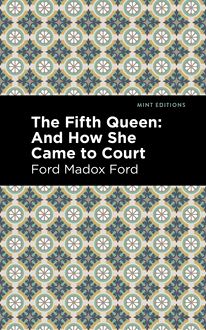
Ebooks
The Fifth Queen
Ford Madox Ford


Ebooks
Rob Roy
Sir Walter Scott


Ebooks
The Lady of the Lake
Sir Walter Scott

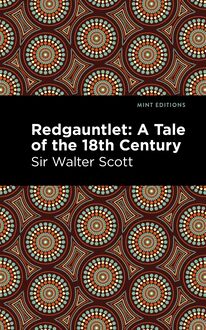
Ebooks
Redgauntlet: A Tale of the Eighteenth Century
Sir Walter Scott

Ebooks
Classiques
Redgauntlet: A Tale of the Eighteenth Century
Sir Walter Scott
262 pages
English
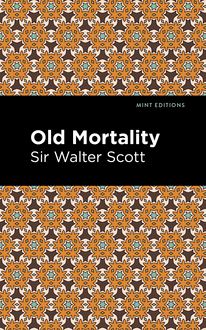
Ebooks
Old Mortality
Sir Walter Scott

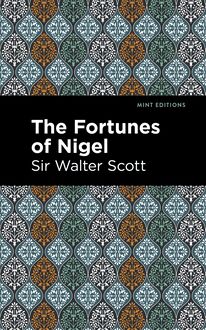
Ebooks
The Fortunes of Nigel
Sir Walter Scott


Ebooks
The Deerslayer
James Fenimore Cooper

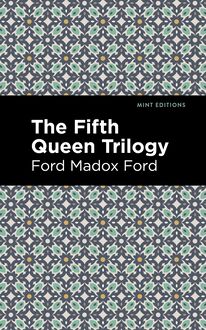
Ebooks
The Fifth Queen Trilogy
Ford Madox Ford

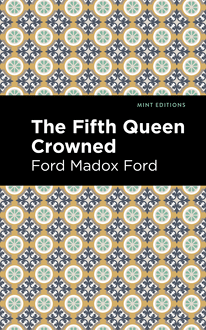
Ebooks
The Fifth Queen Crowned
Ford Madox Ford

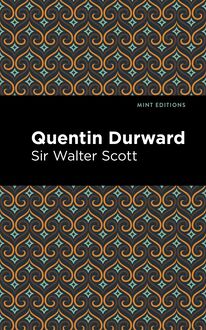
Ebooks
Quentin Durward
Sir Walter Scott


Ebooks
Guy Mannering; Or, The Astrologer
Sir Walter Scott

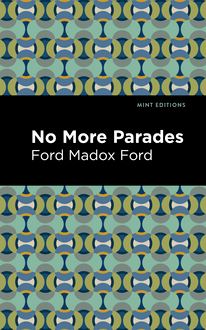
Ebooks
No More Parades
Ford Madox Ford


Ebooks
The Abbot
Sir Walter Scott


Ebooks
War and Peace Books I - V
Leo Tolstoy

-
 Univers
Univers
-
 Ebooks
Ebooks
-
 Livres audio
Livres audio
-
 Presse
Presse
-
 Podcasts
Podcasts
-
 BD
BD
-
 Documents
Documents
-
Jeunesse
-
Littérature
-
Ressources professionnelles
-
Santé et bien-être
-
Savoirs
-
Education
-
Loisirs et hobbies
-
Art, musique et cinéma
-
Actualité et débat de société
-
Jeunesse
-
Littérature
-
Ressources professionnelles
-
Santé et bien-être
-
Savoirs
-
Education
-
Loisirs et hobbies
-
Art, musique et cinéma
-
Actualité et débat de société
-
Actualités
-
Lifestyle
-
Presse jeunesse
-
Presse professionnelle
-
Pratique
-
Presse sportive
-
Presse internationale
-
Culture & Médias
-
Action et Aventures
-
Science-fiction et Fantasy
-
Société
-
Jeunesse
-
Littérature
-
Ressources professionnelles
-
Santé et bien-être
-
Savoirs
-
Education
-
Loisirs et hobbies
-
Art, musique et cinéma
-
Actualité et débat de société
- Cours
- Révisions
- Ressources pédagogiques
- Sciences de l’éducation
- Manuels scolaires
- Langues
- Travaux de classe
- Annales de BEP
- Etudes supérieures
- Maternelle et primaire
- Fiches de lecture
- Orientation scolaire
- Méthodologie
- Corrigés de devoir
- Annales d’examens et concours
- Annales du bac
- Annales du brevet
- Rapports de stage





